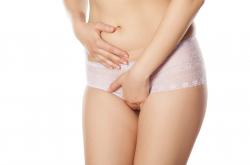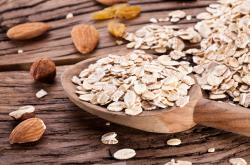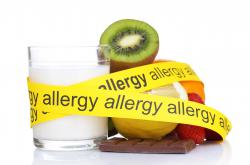Candida And Fatigue
What is Candida and what are the signs and symptoms of Candida overgrowth? How can you diagnose Candida infection? Find out what sort of treatments are available.
What is Candida and what are its symptoms?
Candida is a fungi (sometimes called a yeast infection) that is found in the mouth, vagina and in the intestinal tract. Candida infections seem to be on the increase, which has been linked with the over-use of antibiotics. Not only are antibiotics routinely prescribed for every infection, whether warranted or not, they are also given to most livestock. If you then eat the meat, you are often consuming a second batch of antibiotics. Additionally, many people take steroid medications and contraceptive pills, which also support the development of Candida.
Candida is always present in our body, but normally doesn’t present a problem if a person has a bacterial balance in the intestinal track. When you take antibiotics, you kill the bad as well as the good bacteria. This allows Candida, normally held in check, to overgrow. An analogy might be a garden, with a variety of plants which for some reason die back, allowing a fast-growing creeper to take over the whole garden and throttle what remains of the original vegetation. Candida is like that because it colonizes the bowel and then stops it working the way it should, a condition known as dysbiosis of the gut. Dysbiosis creates the following:
- Lack of ‘good’ bacteria, which in turn lowers the ability of the body to absorb vital nutrients such as vitamins, minerals, amino acids etc.
- Some of the food begins to putrefy and is converted into toxins, which further lowers the body’s vitality.
The net result is fatigue as well as the following symptoms:
- abdominal gas and bloating
- headaches
- migraines
- vaginal or rectal itching
- inability to concentrate
- mood swings
- diarrhea
- constipation
Diagnosing Candida
Diagnosing Candida can be quite difficult as there are no specific tests of stool samples or blood work. The above symptoms plus a detailed questionnaire (such as the one below) can give you an indication of your condition.
Candida (Yeast Infection) Questionnaire
- Have you been taking antibiotics for more than 1 month?
- Are you experiencing frequent episodes of vaginitis or prostatitis?
- Have you taken lately a broad spectrum antibiotic?
- Have you been on birth control pills for more than six months?
- Do you have any chemical sensitivity (to perfumes, other odors,…)?
- Do you crave sweets?
- Are you often feeling fatigued?
- Do you experience tingling or burning sensations in your limbs?
- Do you suffer from muscle aches?
- Do you often feel bloated or have gas?
- Do you have menstrual cramps or irregularities?
- Do you notice mucus in stools?
- Do you suffer from indigestion or heartburn?
- Do you often get skin infections?
- Do you get nasal congestion or discharge?
- Are you experiencing different symptoms, such as drowsiness, irritability, difficulty concentrating, mood swings..?
- Do you suffer from frequent urinary infections?
- Do you get rash or blisters in mouth?
- Have you experienced loss of libido?
- Do you have abdominal pain or cramping?
This questionnaire gives you a broad idea of the conditions, related to Candida. The more questions that apply to you, the more likely you are suffering from a Candida overgrowth.
The anti Candida diet
One of the ways you can begin to help yourself is to adopt the anti Candida diet for three weeks. If you start feeling better after a few weeks on the diet, then this supports the diagnosis of Candida overgrowth. If the diet doesn’t make you feel better, you will still have done your system a lot of good.
The anti-Candida diet is a diet which aims to eliminate Candida by restricting the intake of foods which feed it. Before you begin, go to your store cupboard and throw out all food which contains additives, preservatives, or hydrogenated fats. In other words, any junk food. For the next three weeks, you are going to focus on fresh vegetables with meat, fish and eggs. Use modest amounts of olive or walnut oil. You can add unprocessed nuts e.g. almonds, cashews, pumpkin nuts, but not peanuts. Buy organic produce wherever you can.
It’s an excellent idea to make a food plan for the week. That way you will be able to shop for your food and ensure you get the best, most healthful nutrition.
Foods that you can eat freely in the first 3 weeks
Asparagus | Eggplant | Onions | Soya beans |
Beet Greens | Garlic | Parsley | Spinach |
Broccoli | Green pepper | Parsnips | String beans |
Brussels sprouts | Kale | Peppers, bell | Tomatoes |
Cabbage | Kohlrabi | Radishes | Turnips |
Carrots | Lettuce | Rutabaga | Meat, lean cuts, unprocessed |
Celery | Leeks | Shallot | Fish (fresh or frozen) |
Cucumbers | Okra | Snow Peas | Chicken |
Foods that you can eat cautiously in the first 3 weeks
Artichoke | Fennel | Wheat | Whole grains |
Beans, peas | Barley | Avocado | Corn |
Potatoes | Kamut | Beets | Millet |
Potatoes, sweet | Oats | Breadfruit | Rice |
Butternut squash | Spelt | Celeriac | Teff |
Foods you must avoid
There are certain foods that you must cut out altogether. These include:
Sugar and other quick-acting carbohydrates, including sucrose, fructose, maltose, glycogen, mannitol, sorbitol, galactose, monosaccharides and polysaccharide. Also avoid honey, date sugar, maple, syrup, and molasses. Stevia is a good substitute for sugar if you cannot get used to the taste of completely unsweetened food.
For the first ten days of your diet, avoid:
- Baked goods
- Cheeses
- Condiments e.g. ketchup, mustard
- Malt products
- Processed and smoked meats
- Edible fungi
- Melons
- Dried and candied fruits
- Leftovers.
You should drink at least 8 glasses of water a day. Avoid alcohol, fruit drinks and diet drinks.
Other treatments for handling Candida
You may need prescription medication to handle Candida effectively. The following anti-fungals are most often prescribed:
- Nystatin - used to be very effective, but lately the Candida is becoming more and more resistant to this medication.
- Diflucan – effective, but can cause liver inflammation, so you need to have this checked if you are taking the medication for longer than six weeks.
Also, take acidophilus (either in the form of pills or in yoghurt), bifidus or fructooligosacchides to create healthy bacteria in the intestinal tract. Additionally, deficiencies in both zinc and selenium seem to lower resistance to Candida, so it is worth supplementing both of them.
To Sum Up
The road back from extreme fatigue may seem difficult, but going on an anti Candida will pay large dividends. Not only will you feel better, but you will also start to address the underlying issue of your tiredness and begin the process of regaining your health.













Leave a comment